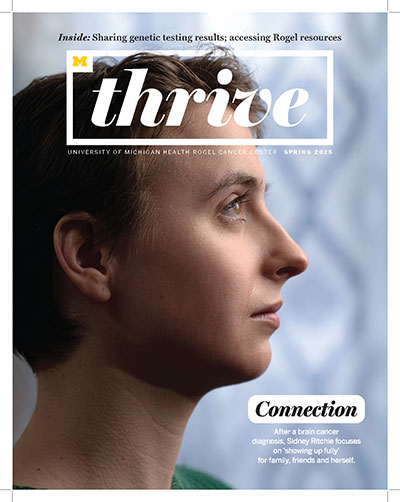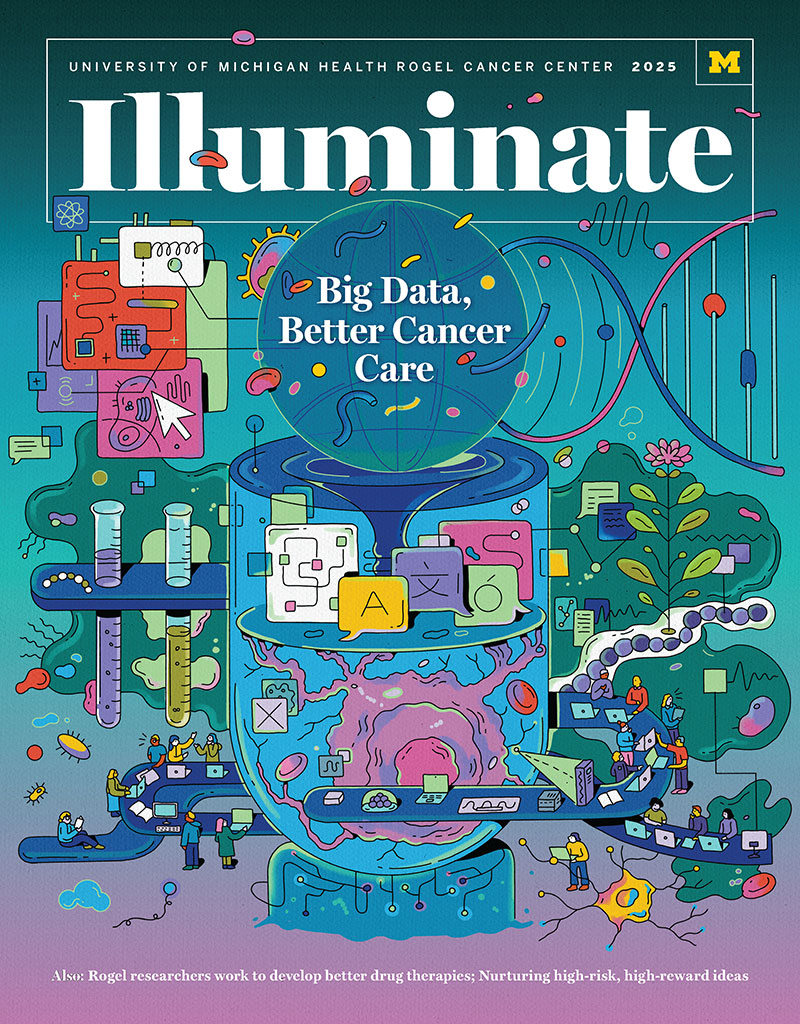News and Events
Recent Releases
 06/16/2025 - 10:00am
06/16/2025 - 10:00am
ASCO 2025 Rogel Recap
The 2025 American Society of Clinical Oncology Annual (ASCO) Meeting was held in Chicago, Illinois, May 30-June 3. Many Rogel researchers participated in presentations, poster sessions and panel discussions before an audience of cancer researchers from around the globe. Read on for the highlights.
 06/06/2025 - 10:30am
06/06/2025 - 10:30am
U-M awarded prestigious NIH grant to establish national center for microsystems-based biomedical imaging
Researchers from the University of Michigan received a $6 million center grant from the National Institutes of Health to establish the new National Center for Biomedical Imaging and Bioengineering. The center will be dedicated to microsystems-based imaging systems.
 06/02/2025 - 6:45am
06/02/2025 - 6:45am
Rogel Cancer Center receives $50M to revolutionize pancreatic cancer care and research
Rogel Cancer Center receives $50M gift from Richard and Susan Rogel to aim to revolutionize how the world detects, treats, and ultimately cures pancreatic cancer.
 06/02/2025 - 6:45am
06/02/2025 - 6:45am
Study offers reassurance for patients with some cancer-linked genes
Patients with cancer-linked variants in ATM, CHEK2 or PALB2 genes do not have a greater risk of dying from their disease, research finds
 06/02/2025 - 6:30am
06/02/2025 - 6:30am
Drug combination reduces breast cancer risk and improves metabolic health in rats
Bazedoxifene and conjugated estrogens reversed obesity-associated changes, supporting their use in patients


